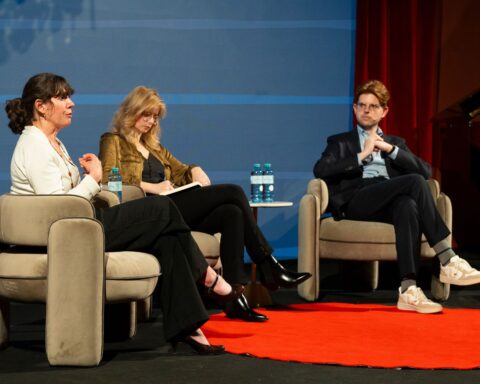We are in 2020 and, thankfully, in the past few decades more and more people have been drawing more attention to the problem of various kinds of discrimination. Citizens of the world slowly develop an understanding that we are all different, and that it is for our own sake to be more tolerant.
However, it is still common to slip into judging people for the way they speak. Native speakers may often drop barbed remarks about the speaking abilities or accents of others without even realizing that they are hurting someone’s feelings. Yet, discrimination bears more complex consequences than hurt feelings: people may feel isolated and alienated, which can lead to psychological problems or complexes. So, why is language discrimination even a thing?
Linguistic discrimination,
also called linguicism, is an unfair treatment of a person because of the way he or she speaks. It means not tolerating individual characteristics of language usage, such as phonetics or accents, modality, syntax, and vocabulary size. Based on how someone speaks, people may form prejudices about social status, level of education, personal traits, and other characteristics, which result in stigmatization of non-native speakers. These concepts are nothing new to the science of linguistics. In fact, there is an own field that researches the link between the use of language and the attitudes towards languages: sociolinguistics.
How does communication work?
Jürgen Habermas, a philosopher and author of the Theory of Communicative Action, determined understanding as the main aim of any communication process. To understand each other better, we should, ideally, speak the same language. It is undoubtedly an essential requirement for a successful conversation, however, merely speaking the same language is not enough.
For instance, Umberto Eco believed that each message a person gets is received as a code, which has to be “decoded”. The process of decoding is influenced by the received codes and vocabulary of the decoder, and depends on the decoder’s personal environment. In other words, even if two people speak the same language, they may understand the message differently due to these factors.
Where do prejudices against non-native speakers come from?
Most of us can relate to this idea: we all had moments when we didn’t get what the person meant. The problem is, when a misunderstanding happens with a non-native speaker, it is usually assumed that it happened due to lack of language knowledge. Quite often the language discrimination takes place because non-native speakers tend to have a different accent.
In fact, accents are a part of any language and all of us have different accents. Linguist Vivian Cook points out that “a foreign accent does not necessarily show lack of proficiency, [but is the] only difference from the ideal native speaker, and may often be a sign of national, ethnic or dialect identity”.
Scientists assume that people may not tolerate the way other people speak because of how our brain processes foreign accents: “the individual sounds may differ from ones we’re used to, and where stress is located in the word and in the sentence also differs”. That makes it more difficult to understand the message.
However, this fact does not give us the right to discriminate against others. We rarely care about different accents within a country, even though we can clearly distinguish them. Native speakers of the same language hardly notice their own distinctive accents when speaking a foreign language, but they can be quick to judge others who try to speak a foreign language.
Language discrimination does not necessarily appear in the form of direct mocking
– rather, it happens indirectly. It can be transmitted through things like frowning, when a person says something in the wrong way, or switching to English, resulting in the speaker emphasizing that the conversation partner is not a native speaker. More ‘severe’ expressions of this discrimination are othering, where a non-native speaker is being isolated from the group; not focusing on the content but rather, on the accent, even when the message is understandable; making rude remarks about the native language of the person or prohibiting from speaking it.
We all are well aware of the benefits of learning and speaking foreign languages. It doesn’t only give us a chance to understand each other better, feel confident when traveling, and learn about different cultures, but it also benefits our brains. Here are just a few examples of what speaking different languages can do to your brain: less mental decline in old age, better performance on tasks that require high-level thinking, multitasking, sustained attention, cognitive flexibility, and better learning abilities.
Knowing all of this, it becomes even more unreasonable to mock or discriminate non-native speakers because of their accents or lack of vocabulary. After all, people put a lot of effort into learning a completely new language, moving to another country and trying to integrate into a new society by speaking the local language. Yet, the lack of encouraging experiences with locals often results in the development of different anxieties – the fear of judgment, the fear of making mistakes, the fear of never fitting in.
In his TED Talk, artist Safwat Saleem explains how he overcame such challenges and learned to cope with the mockery. If you also encounter similar problems, this video will hopefully motivate you to not give up.
Linguistic discrimination at workplaces
The problem is, the judgment of language proficiency goes beyond questioning accents, oftentimes people slip into the cycle of questioning other capabilities as well. It is especially problematic when looking for a job. Even though the theme of employment is tricky and complex, since it consists of quite a lot of aspects like visa issues, personal qualifications, and experience of an applicant, it is worth mentioning that the language factor should not be an issue.
For instance, in order to study at the University of Vienna, a non-EU citizen has to provide proof of advanced German language skills (C1). However, applicants may face prejudice when looking for a student job because they have a different mother tongue. This case is a striking example of language discrimination.
If the job demands a lot of work with language, an employer can test the abilities of an (non-native speaker) applicant with different assignments. It is worth noting, that native speakers also get qualificatory assignments when applying for such jobs. In a nutshell: our mother tongue doesn’t automatically make us linguists. From time to time, we all make mistakes when speaking and, especially, writing in our native language.
The gap between an “ideal native” and a tolerant person
Some researchers argue that language discrimination takes place because there is “the gap that still separates non-native speakers from the “ideal” native”. However, the picture of an ‘ideal’ native of any country is quite vague, as everyone has a different image in their heads.
Considering all this, it is worth being tolerant of people who try to speak our native language and even helping them, but in a delicate manner. Most of the non-native speakers will be glad to learn something new and improve their speaking abilities. Adjusting to a new language is neither easy nor quick, and, certainly, mistakes take place. However, keep in mind that there are numerous reasons for mistakes, not solely the language incompetence. For example, some constructs are difficult because they differ from equivalent phrases in other languages. When a person can’t find the logic behind a phrase, it makes it more difficult to remember it. Concerning accents, some sounds are simply difficult to pronounce because a person has never used them in their life before. In this case, some praising and genuine help would be much more beneficial than discrimination and mockery.
Maybe next time when we meet a person, who is less fluent in the local language, we should appreciate the effort, be patient and tolerant. Being able to study, work and navigate life in another language and different society is not something anybody should be ashamed, but rather be proud of.
header image credits: Olena Levitina






I completely relate to the pain of being accused of “having language barriers”, “being asked if I’m speaking English” and awful remarks like that.
I attended grad school. own multiple rental properties and I’m gainfully employed as a manager in a fortune 500 company. Yet. when people attack me with discriminatory comments against my speech I fall apart. I cry for days, go through sleepless nights and even wish that I was dead so I wouldn’t have to endure so much abuse from ignorant inconsiderate people.
I know how it feel, I just was denied a manager position because of my Spanish accent and not being fluent in English , it hurt so much that i resign ,I can’t be in a place where I am been stuck with not any possibility to move forward ,,